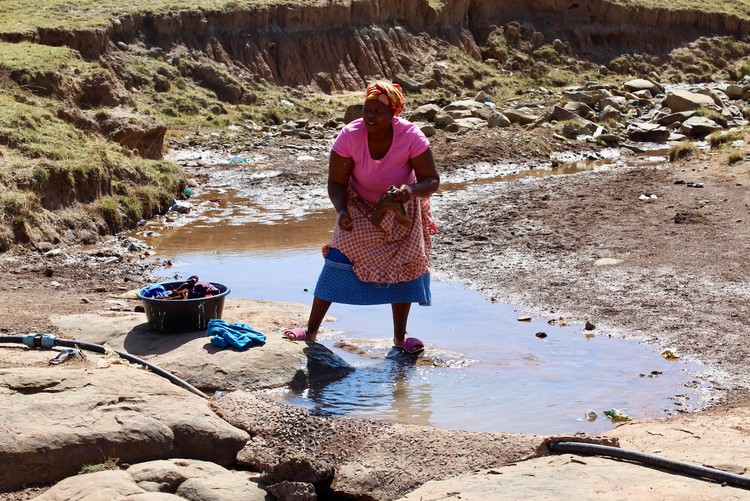Village without tap water for two years
District municipality blames drought for the plight of villagers in Cofimvaba
Taps have been dry for two years in Jarha village, Cofimvaba, in the Eastern Cape. Villagers from about 300 households have to drink river water and wash their clothes in the local stream. The river is also used by pigs and cattle.
Spokesperson for Chris Hani District Municipality Thobeka Mqamelo said spring water supplied the five standpipes in Jarha village, but it had eventually dried up because of persistent drought conditions.
Mqamelo said the District Municipality intended to connect the village to the main system that supplies Cofimvaba town and surrounding areas. She said currently work is underway to finalise the connection.
“We are certain that the community will have access to water in no time. But a period of time must be allowed for reservoirs to fill up to acceptable levels,” she said.
Nakhane Poyiyana, who has been living in the village for the past six years, said, “The water issue here has been happening for a very long time. At first, the municipality said our pipes are blocked by sand; that was five years ago. They fixed it, but we would get water for a few weeks and then the problem would start again.”
She said sometimes months would go by before the municipality restored the supply. Villagers go to the river as early as 3 and 4am, before the livestock are taken to drink.
“We are really struggling with water. Every morning we rush to the river because we want to get there while the water is still clean,” she said.
Poyiyiana’s neighbour, Lilitha Gxaba, said, “Water is life. We do not deserve to use the dirty water while we have taps which should be supplying us with clean water.”
In March, Groundup reported on villagers in Mcungco, about six kilometres from Jarha, who had gone for weeks without clean drinking water before the municipality promised to restore their tap water.
Next: Over 150 households share three toilets
Previous: Court ruling will legalise dependents of asylum seekers
© 2019 GroundUp.
This article is licensed under a Creative Commons Attribution-NoDerivatives 4.0 International License.
You may republish this article, so long as you credit the authors and GroundUp, and do not change the text. Please include a link back to the original article.



